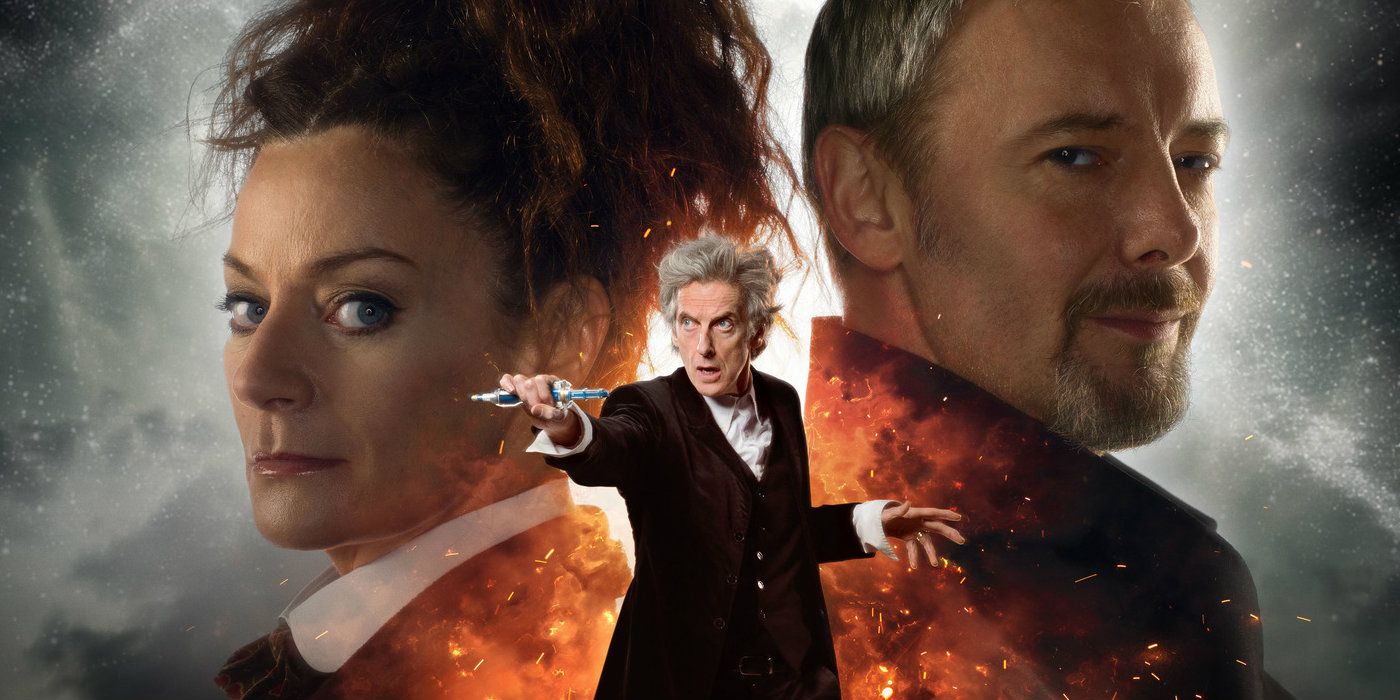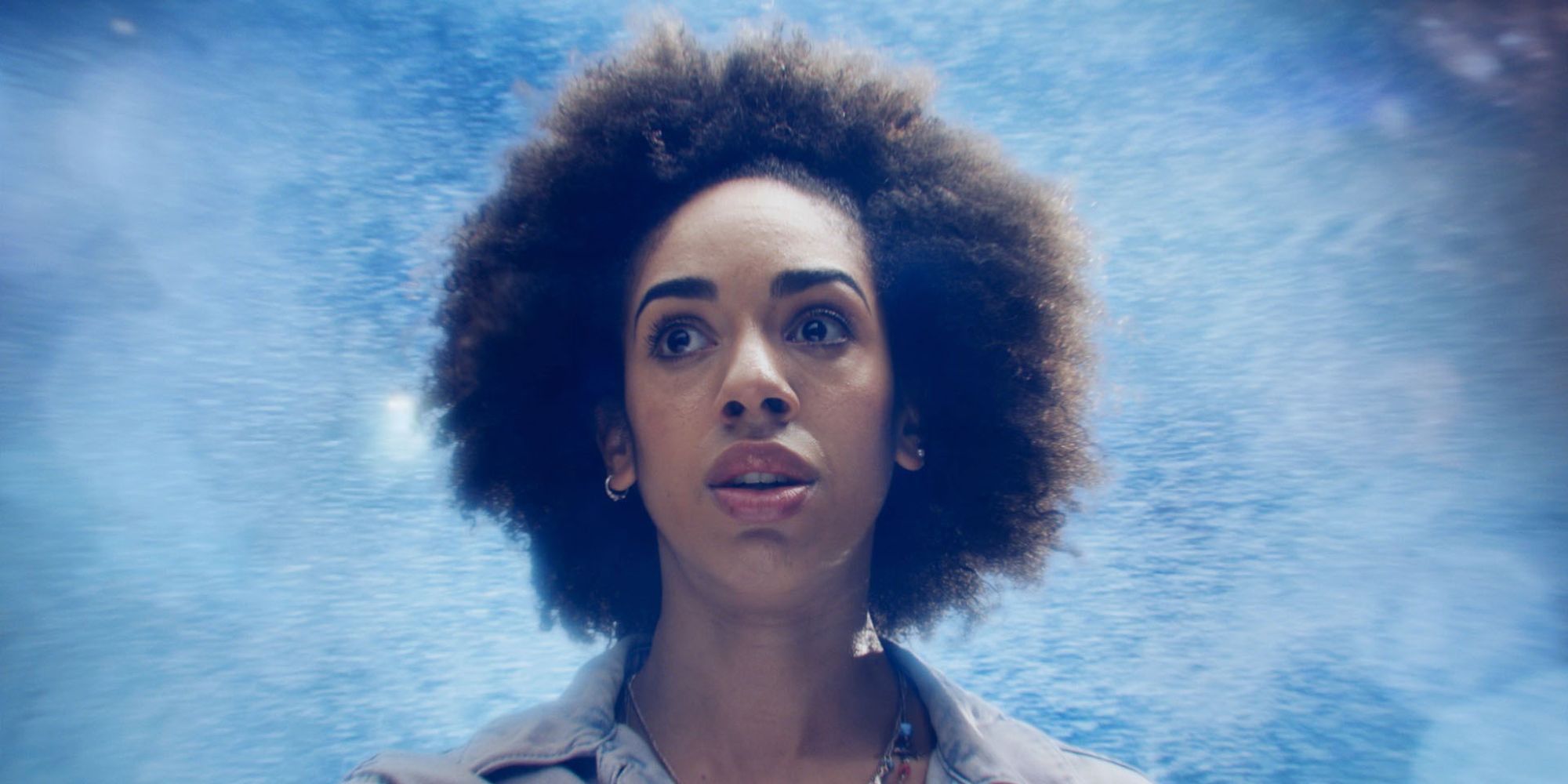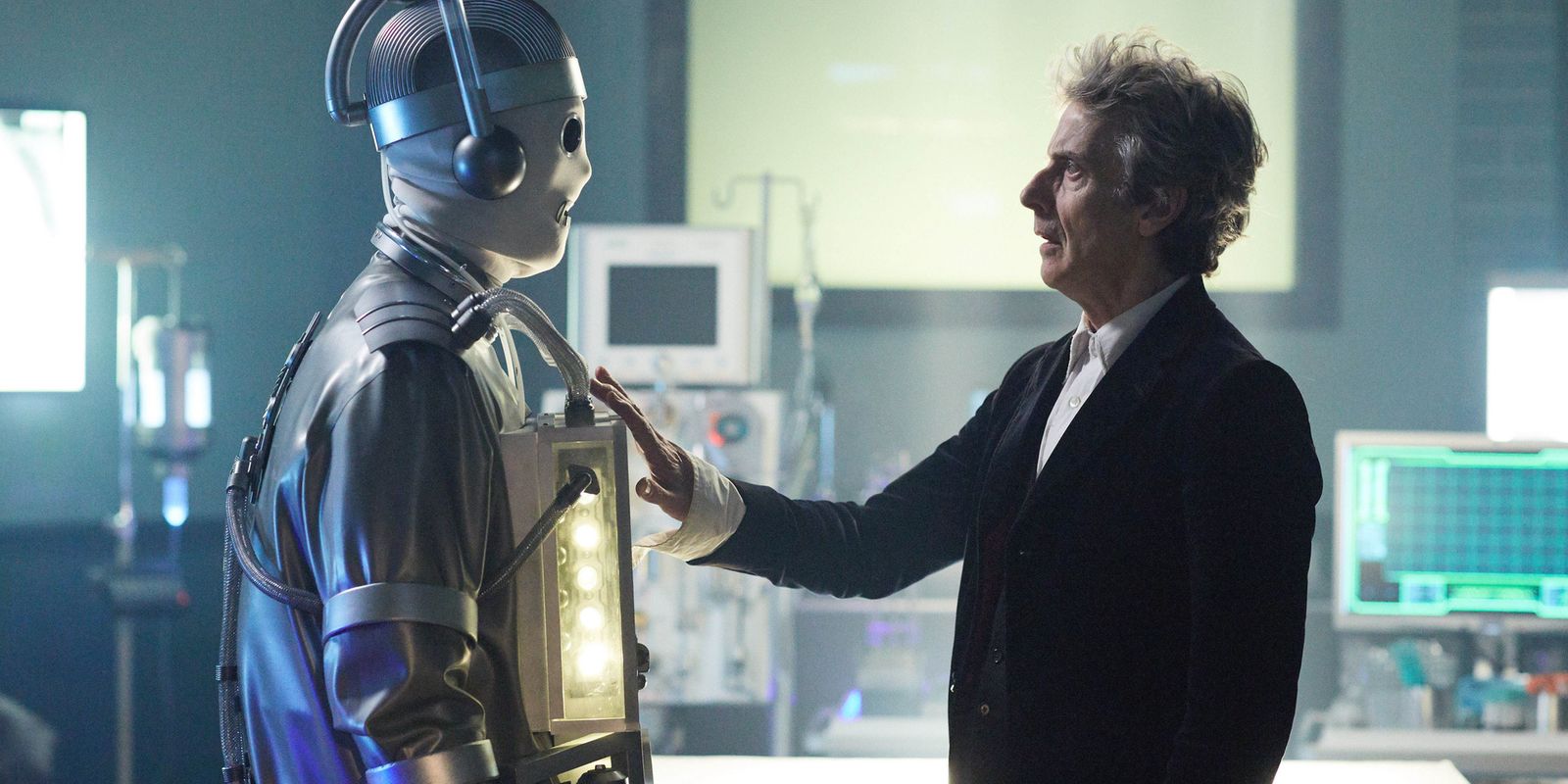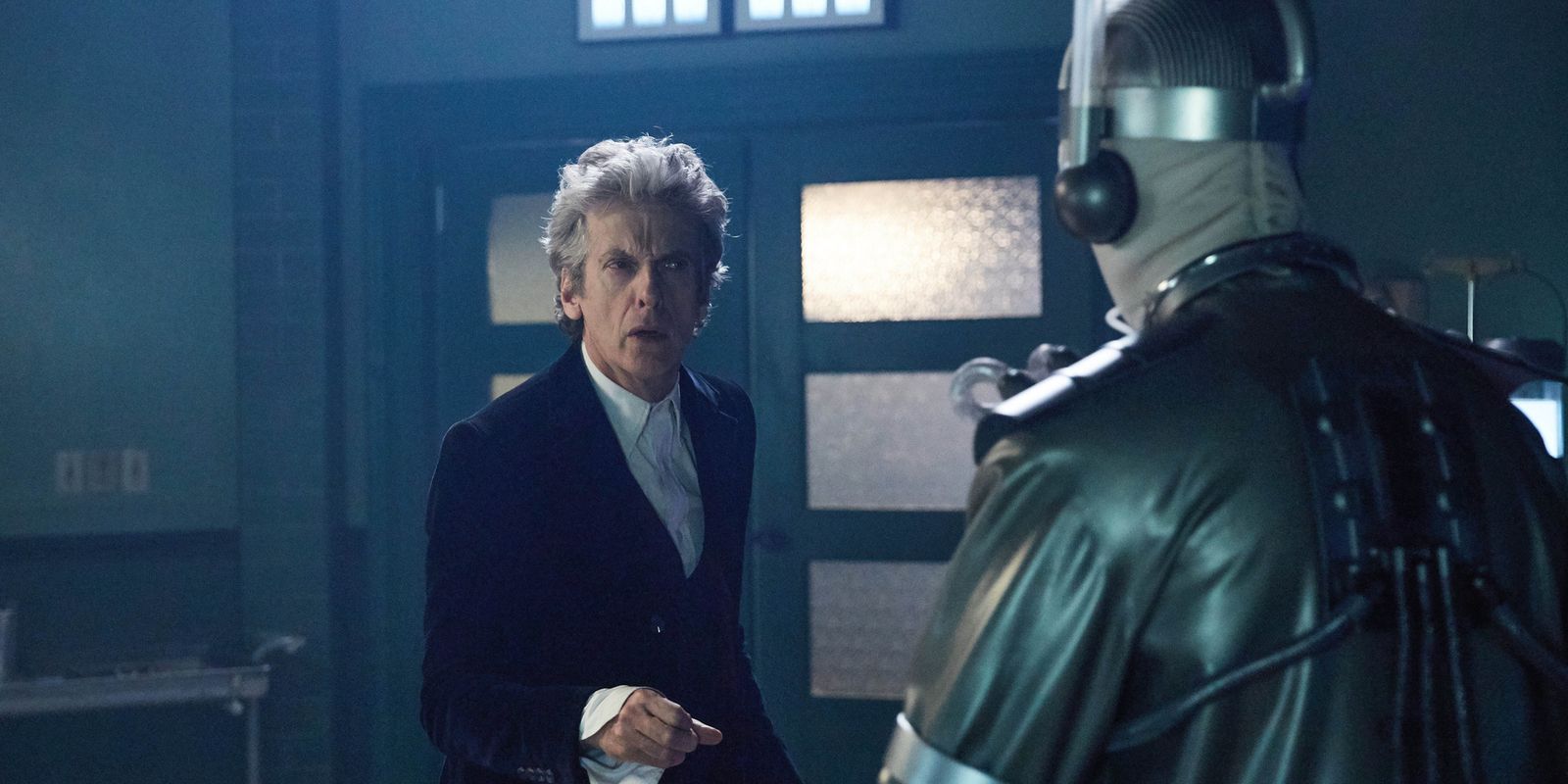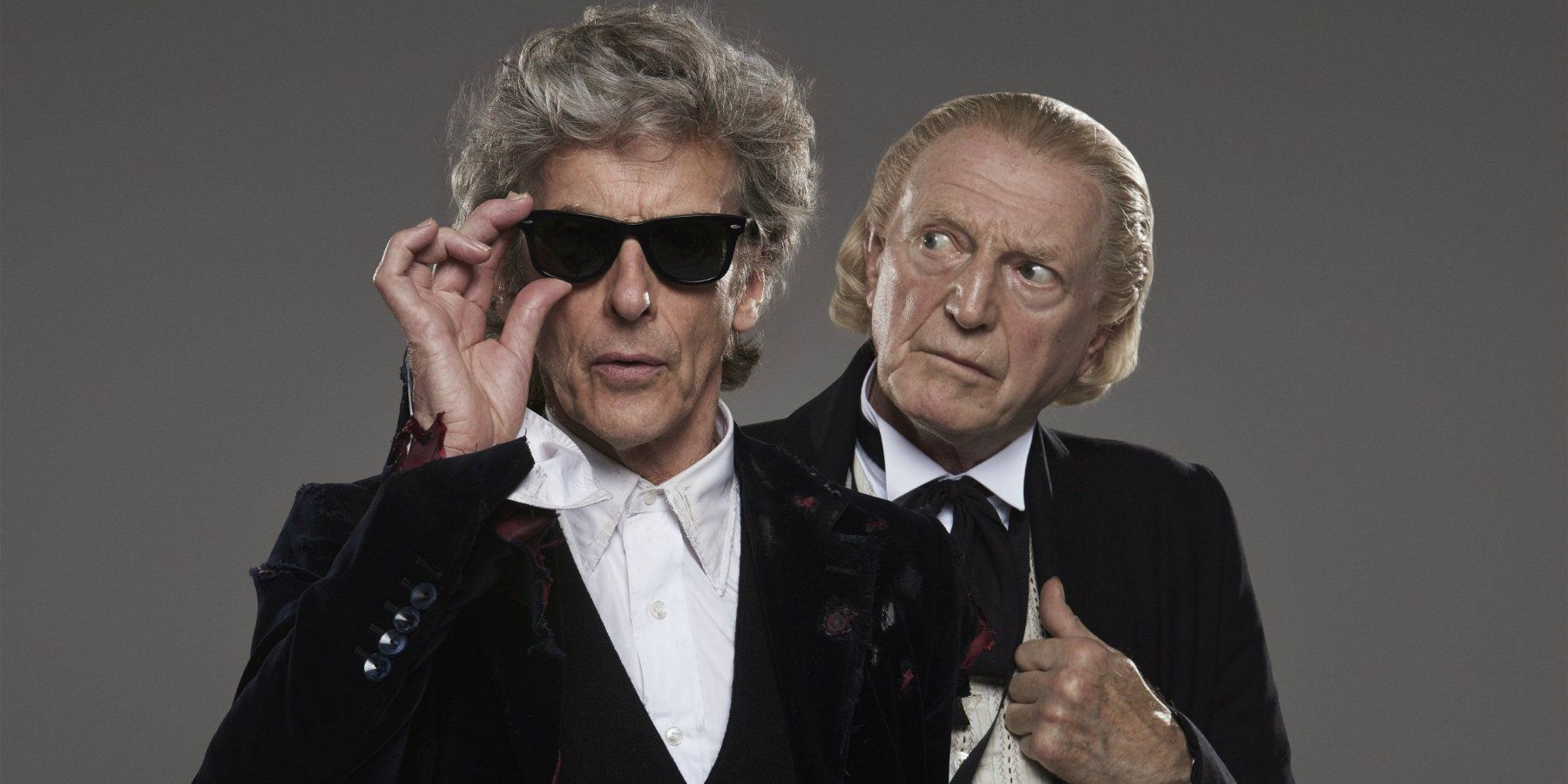WARNING: SPOILERS for the Doctor Who season 10 finale!
What happened to Bill and the Doctor in the Doctor Who season 10 finale? The season 10 finale of Doctor Who was always going to be a big one. Not only is Steven Moffat stepping down as showrunner with this season, but both Peter Capaldi and Pearl Mackie are exiting the roles of the Doctor and companion, with their on-screen replacements to be introduced during this year's Christmas special. It's a time of major transition for the British sci-fi staple, and that means a big story that gives Mackie the send off she deserves and sets up what will be Capaldi's final hour as the Twelfth Doctor.
In both instances, 'The Doctor Falls' more than delivered. Bringing back the Mondasian Cybermen (an alternate kind of Cybermen hailing from Earth-twin Mondas, last seen on the show some 50 years ago), Moffat crafted a story involving a black hole, space colonies, temporal distortion and two separate Masters for the Doctor and their companions to overcome. As always, the Doctor prevails, but not without a price: Bill, transformed into a Cyberman but retaining her mind, and the Doctor are both forced to sacrifice themselves to stop the Cybermen from converting all of the colonists on-board.
This heroic act is tear-inducing enough, watching as Twelve and Bill are engulfed in a massive explosion taking any and every of their metal-bodied adversaries with them. But what followed was the real kicker, as one says their last goodbye to the TARDIS and the other approaches a new dawn.
What Happened to Bill?
Having just about survived the blast caused by her laser hitting time-energy generated by the Doctor, Cyber-Bill stands over his severely injured body weeping before suddenly finding herself standing in her normal human form again. Confused, a familiar face appears before her – anthropomorphic fluid-creature Heather from episode one of this series, 'The Pilot.'
Heather explains that by leaving Bill with a drop of her body, she's been able to track her and could see she was in trouble. By converting her into another liquid alien, Heather could save Bill's mind and memories, and Bill can take her regular human form whenever she chooses - along with being able to now travel the universe at her whim. They take the Doctor back to the TARDIS and pilot it away from the colony ship before Bill says her final goodbye and decides to travel the stars with Heather as a lesbian water-alien power couple.
RELATED: Steven Moffat Discusses Bill's "Fate" in the Season 10 Finale
Fans of Charlie Brooker's Black Mirror will recognize this as sounding very similar to 'San Jupinero,' one of the stand-out episodes of the Netflix-released third season of the dark sci-fi anthology. It's easily a coincidence, but if Moffat was going to draw from anywhere for contemporary inspiration, Black Mirror is a fine place to go. In any case, Bill's farewell being so romantic is a wise move that hits on a lot of the things that made her character such a vibrant addition to Doctor Who canon.
Her sexuality is front-and-centre, as is her fascination with space and the world outside of her own. She gets to spend her days exploring every crevice of the universe with a partner who truly loves her. It's a very poetic and poignant way to ring-out a character that represented a new wave of progress for the 55 year-old show. What's more, it echoes the exit of Amy and Rory Pond in the series and uses the idea of a companion not needing or wanting to travel with the Doctor any more to have a full life. Doctor/companion break-ups are almost always tearjerkers, and some of the heaviest – like this one - are when a companion tells our favourite Time Lord, and by extension us, that it's time for them to go their own way.
Continued on Page 2: [valnet-url-page page=2 paginated=0 text='What%20Happened%20to%20the%20Doctor%20in%20the%20Finale%3F']
What Happened to The Doctor?
The opening of previous episode 'World Enough And Time' showed the Doctor stumbling out of the TARDIS on an icy planet, burning with regeneration energy. Naturally, 'The Doctor Falls' concludes with revealing a little more of what's happening. The Doctor, after having his unconscious body moved to the TARDIS by Heather and Bill post-explosion, begins regenerating after regaining consciousness. Whether or not Bill's "tear of hope" was a factor in waking the Doctor up, kick-starting his regeneration, or could play a role in future episodes, remains to be seen. Either way, adamant not to regenerate, The Doctor does everything he can to stop it, concentrating all his energy on staving off the process.
Given that Capladi's replacement is still in the wind with rumors and hearsay, it was a stretch to think that we'd see an actual regeneration there and then. Instead, fans got something even more out there and unexpected. Burning up on the snowy plain the TARDIS had landed on, Twelve hears a voice, and replies, introducing himself as “The Doctor.” Said introduction is then refuted by the voice, who comes into view as David Bradley playing The Doctor – the First Doctor, to be precise.
Bradley played the First Doctor and his actor, William Hartnell, in An Adventure In Space And Time, a part-documentary, part-dramatization of the genesis of Doctor Who made for the 50th anniversary. Him reprising the role for an on-screen, fully canonical meeting with another Doctor was something unheard of, with appearances from deceased former Doctors in modern episodes coming from archive footage cleverly edited together. Although there were rumors of Bradley's inclusion in the upcoming Christmas special, appearing now is about as unexpected as a twist could get in the series - a very suitable way for a showrunner to bow out.
The First Doctor's presence is more or less inherently a ret-con as most of the vocabulary and lore of Doctor Who as we know it was either unlabelled or non-existent during Hartnell's run. The term “First Doctor” didn't technically exist until the first crossover, 'The Three Doctors,' and the Doctor being a Time Lord from Gallifrey wasn't established until after Hartnell left the role. Memory and legacy have been recurring themes of Moffat's time on Doctor Who, and he often romanticizes the bittersweet, flawed nature of both. The showrunner bringing in the First Doctor and firmly establishing him within the modern parlance is a very bold way to plant his flag on the canon of the Doctor. It also introduces some weighty thematic potential for who the next Doctor could be, and what kind of actor could inhabit the role.
For now though, we're left with Twelve and One meeting each other. Over five decades of science fiction history and story-telling folding in on itself. One thing's for certain – this year's Christmas special is going to be one for the ages.
NEXT: Doctor Who Season 10 Finale: The Master’s Fate Explained
Doctor Who returns on BBC and BBC America this Christmas

